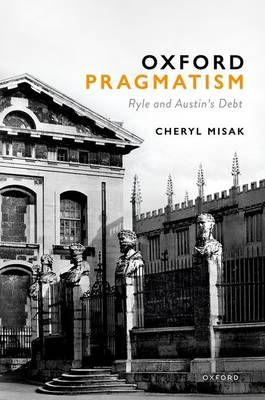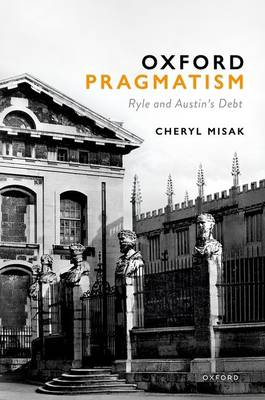
Je cadeautjes zeker op tijd in huis hebben voor de feestdagen? Kom langs in onze winkels en vind het perfecte geschenk!
- Afhalen na 1 uur in een winkel met voorraad
- Gratis thuislevering in België vanaf € 30
- Ruim aanbod met 7 miljoen producten
Je cadeautjes zeker op tijd in huis hebben voor de feestdagen? Kom langs in onze winkels en vind het perfecte geschenk!
- Afhalen na 1 uur in een winkel met voorraad
- Gratis thuislevering in België vanaf € 30
- Ruim aanbod met 7 miljoen producten
Zoeken
Omschrijving
Oxford Pragmatism uncovers and explores the unrecognized impact of American pragmatism on the Oxford linguistic philosophy that thrived from the 1930s to the 1950s, made famous by Gilbert Ryle and J. L Austin. Cheryl Misak argues that Margaret Macdonald, a neglected British analytic philosopher and excellent scholar of American pragmatism, delivered core pragmatist ideas to her friend Ryle: the mind as a set of dispositions to behave; laws as 'inference tickets', and the distinction between knowing that something is true and knowing how to do something. Macdonald found these ideas in the work of the founder of pragmatism C. S. Peirce and his two most impressive followers, Clarence Irving Lewis in Cambridge, Massachusetts and Frank Ramsey in Cambridge, England. Ryle, it is argued, picked them up from Macdonald, though failed to acknowledge them as hers or as pragmatist. A lineage is also traced from American pragmatism to Austin's ideas that when we use words we perform actions, and that definitions must be fit for purpose. This route runs from Peirce and Lewis to Austin and through to contemporary conceptual engineers who follow in Austin's footsteps. Along the way, the views of Wittgenstein, Russell, Schiller, Ayer, and Cook Wilson are canvassed and assessed. In a Postscript, Misak outlines how pragmatism played out in the next generation of Oxford philosophers, such as Strawson and Wiggins.
Specificaties
Betrokkenen
- Auteur(s):
- Uitgeverij:
Inhoud
- Aantal bladzijden:
- 336
- Taal:
- Engels
Eigenschappen
- Productcode (EAN):
- 9780198875888
- Verschijningsdatum:
- 24/10/2025
- Uitvoering:
- Hardcover
- Formaat:
- Genaaid
- Afmetingen:
- 162 mm x 239 mm
- Gewicht:
- 648 g

Alleen bij Standaard Boekhandel
+ 128 punten op je klantenkaart van Standaard Boekhandel
Beoordelingen
We publiceren alleen reviews die voldoen aan de voorwaarden voor reviews. Bekijk onze voorwaarden voor reviews.









